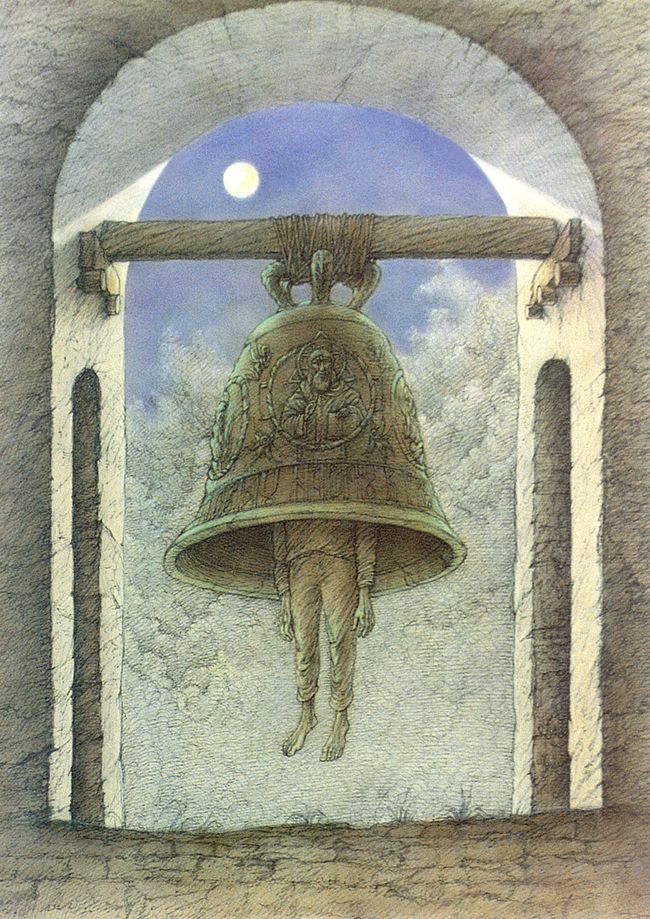“Mocking the tyrant is the most formidable weapon”
Mikhail Zlatkovsky tells The Day why there is no room for political satire in Russia
Political cartoonist Mikhail Zlatkovsky, founder and president of the Russian Association of Cartoonists, is well known far beyond the borders of his country. Zlatkovsky holds more than 200 national and international awards in many genres of fine arts including posters, cartoons, animation, book and magazine illustrations, and graphic and media design. Now he works as the head artist for Novyie izvestia, a newspaper. We offer our readers our interview with Zlatkovsky.
What is the role of caricature today?
“The role of caricature, and not only today, but always, has been the same: ridiculing the drawbacks and vices of society.
“Between 1917 and 1987 the USSR knew only one sort of satire, aimed at imperialism and the ‘enemies of the people.’ There was also a little satire mocking the petty vices of the Soviet life: drinking, slovenliness, youth fashion styles, and admiration for Western music and the like.
“During the perestroika true satire appeared, mocking Gorbachev, the regime, and socialism. And this satire has gradually died away during Putin’s reign.”
Your works have been awarded in many countries. Are they properly valued in Russia?
“No, they are not, and never will be. Not under this regime. However, I believe I enjoy respect among my colleagues.”
One day, in an interview to Radio Liberty, you said that mocking a tyrant is the most formidable weapon. “Should Izvestia or Rossiiskaya gazeta publish the caricatures of Putin or Medvedev that my colleagues have piled up over these years, there would be no more Putin or Medvedev.” Why aren’t these cartoons published then?
“An old Jewish joke gives the right answer: ‘Just because.’ They will never print them just because it is a direct threat to the incumbent regime. Even the few still independent media are afraid to publish SUCH satire.”
Is there room for political satire in Russian media today, for the themes of decommunization and “imperial style”?
“Of course, there is. If this political satire is aimed at the opposition, the US, ‘gay Europe,’ or Ukraine. Such pictures are gladly printed by most of the government-supported mass media.
“How can one even speak of decommunization and ‘imperial style’ when the themes of empire and communism are becoming something like official ideology in Russia? For instance, soon they will hold a referendum on the restoration of the Dzerzhinsky monument to its old place, opposite the KGB office.”
What made you take up political caricature?
“I did not want to watch my country’s life from aside. However, political satire takes 10 to 15 percent of my time. I would much rather be an artist painting universal human themes.”
Do you feel that there is demand for your work in Russia?
“Of course not. Personally for me, the profession of political satirist has been banned in Russian since 2008. The ban started on the day of Putin’s inauguration: first the church became taboo, then the army, police, prosecutor’s office, Gazprom, sanitary epidemiological service, and finally, since 2008, everything has been taboo.”
What is the contemporary Russian caricature like?
“Some 50 artists or so work only for international contests and earn a living with computer design and desktop publishing. But there are three or five who gladly take part in all of the Kremlin’s propaganda campaigns. The colleagues pity them. I have long stopped saying ‘hello.’”
In January there was a terror attack against the office of the French magazine Charlie Hebdo. Islamists lay the blame on the offensive caricatures of the Prophet Muhammad. Do you think a cartoonist should use self-censorship?
“There cannot be any censorship in caricature, but I have never drawn anything against Islam. There is no point in speaking the same language with cavemen.”
Newspaper output №:
№39, (2015)Section
Society





